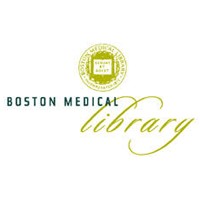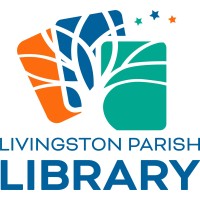Company Details
boston-medical-library
8
42
51912
https://www.countway.harvard.edu/bml/
0
BOS_6651264
In-progress

Boston Medical Library Company CyberSecurity Posture
https://www.countway.harvard.edu/bml/The first Boston Medical Library (BML) was founded by Doctors John C. Warren and James Jackson in 1805. The Boston Medical Library was reconstituted in 1875 by Dr. James Chadwick with Dr. Oliver Wendell Holmes as its President. In 1960, the Boston Medical Library and the President and Fellows of Harvard College (Harvard University) entered into an agreement to combine the collections, services and administration of the Boston Medical Library and the Harvard Medical Library in a new building known as The Francis A. Countway Library of Medicine. Each of the two original institutions continues collecting and ownership of its holdings. The combined library ranks as one of the largest medical libraries in the world with one of the richest collections. The Boston Medical Library is a physician and dentist non-profit organization incorporated in 1877. The BML mission, revised in 2004, is "to be a Library for the dissemination of medical knowledge, the promotion of medical education and scholarship, and the preservation and celebration of medical history, and thereby to advance the quality of health and healthcare of the people." The Boston Medical Library serves as a resource for the lifelong learning of practicing physicians of Massachusetts which has been its founding and continuing mission, besides serving the medical school faculties and students of Harvard Medical School, Boston University Medical School, Tufts University School of Medicine and the University of Massachusetts Medical School. In 1947, the Boston Medical Library formally became the library for the Massachusetts Medical Society (MMS). A Board of Trustees half of which is appointed by the MMS manages the BML. This group meets regularly and has fiduciary responsibility for a significant endowment which provides partial support for the Countway Library as a whole. The Boston Medical Library is a 501(c)(3) tax-exempt, not-for-profit organization.
Company Details
boston-medical-library
8
42
51912
https://www.countway.harvard.edu/bml/
0
BOS_6651264
In-progress
Between 750 and 799

 BML Global Score (TPRM)
BML Global Score (TPRM)XXXX



No incidents recorded for Boston Medical Library in 2025.
No incidents recorded for Boston Medical Library in 2025.
No incidents recorded for Boston Medical Library in 2025.
BML cyber incidents detection timeline including parent company and subsidiaries

The first Boston Medical Library (BML) was founded by Doctors John C. Warren and James Jackson in 1805. The Boston Medical Library was reconstituted in 1875 by Dr. James Chadwick with Dr. Oliver Wendell Holmes as its President. In 1960, the Boston Medical Library and the President and Fellows of Harvard College (Harvard University) entered into an agreement to combine the collections, services and administration of the Boston Medical Library and the Harvard Medical Library in a new building known as The Francis A. Countway Library of Medicine. Each of the two original institutions continues collecting and ownership of its holdings. The combined library ranks as one of the largest medical libraries in the world with one of the richest collections. The Boston Medical Library is a physician and dentist non-profit organization incorporated in 1877. The BML mission, revised in 2004, is "to be a Library for the dissemination of medical knowledge, the promotion of medical education and scholarship, and the preservation and celebration of medical history, and thereby to advance the quality of health and healthcare of the people." The Boston Medical Library serves as a resource for the lifelong learning of practicing physicians of Massachusetts which has been its founding and continuing mission, besides serving the medical school faculties and students of Harvard Medical School, Boston University Medical School, Tufts University School of Medicine and the University of Massachusetts Medical School. In 1947, the Boston Medical Library formally became the library for the Massachusetts Medical Society (MMS). A Board of Trustees half of which is appointed by the MMS manages the BML. This group meets regularly and has fiduciary responsibility for a significant endowment which provides partial support for the Countway Library as a whole. The Boston Medical Library is a 501(c)(3) tax-exempt, not-for-profit organization.


Livingston Parish Library was legally established by the Police Jury in 1946 as a demonstration library of the Louisiana State Library. The first library was located in the Livingston Parish Courthouse and opened its doors December 16, 1946. The first Parish Librarian was Annie S. Cowart with Louise

Welcome to the Wauconda Area Public Library! The library serves the communities of Wauconda, Island Lake, and portions of Lakemoor, Volo, Port Barrington, and Lake Barrington. The purpose of the Wauconda Area Library is to provide and promote a variety of library resources and services in response

The Mechanics' Institute Library and Chess Room is an historic membership library, cultural event center, and chess club located in the Financial District of San Francisco, California at 57 Post Street. Founded in 1854 to serve the vocational needs of out-of-work gold miners, the Institute today is

Highland Community Library is a 501(c) 3 non-profit organization. Since its inception over 50 years ago, the Highland Community Library has provided residents of the East Hills area with reading materials and information resources to meet their entertainment and educational needs. Our service popula

Serving the fastest growing community in Southern Idaho, Meridian Library District offers a wide selection of books, magazine, DVDs, music and more! Providing a fulfilling and enriching experience to all who visit us either in person or on the web, we are committed to inspiring lifelong learning, ad

For over 50 years, Bibliotheca has partnered with libraries to meet the needs of their communities worldwide. Things are changing at lightning speed. It’s time to imagine what a library can do—what a library can be—today and tomorrow. Libraries are competing with the best in consumer technologie
.png)
FDA is cracking down on medical device cybersecurity. In response to an increase in healthcare cybersecurity threats, prevalence of...
The Hirsh Health Sciences Library isn't just books and journals—check out the bloodletting scarificators...

Explore insights on cybersecurity incidents, risk posture, and Rankiteo's assessments.
The official website of Boston Medical Library is https://www.countway.harvard.edu/bml/.
According to Rankiteo, Boston Medical Library’s AI-generated cybersecurity score is 756, reflecting their Fair security posture.
According to Rankiteo, Boston Medical Library currently holds 0 security badges, indicating that no recognized compliance certifications are currently verified for the organization.
According to Rankiteo, Boston Medical Library is not certified under SOC 2 Type 1.
According to Rankiteo, Boston Medical Library does not hold a SOC 2 Type 2 certification.
According to Rankiteo, Boston Medical Library is not listed as GDPR compliant.
According to Rankiteo, Boston Medical Library does not currently maintain PCI DSS compliance.
According to Rankiteo, Boston Medical Library is not compliant with HIPAA regulations.
According to Rankiteo,Boston Medical Library is not certified under ISO 27001, indicating the absence of a formally recognized information security management framework.
Boston Medical Library operates primarily in the Libraries industry.
Boston Medical Library employs approximately 8 people worldwide.
Boston Medical Library presently has no subsidiaries across any sectors.
Boston Medical Library’s official LinkedIn profile has approximately 42 followers.
Boston Medical Library is classified under the NAICS code 51912, which corresponds to Libraries and Archives.
No, Boston Medical Library does not have a profile on Crunchbase.
Yes, Boston Medical Library maintains an official LinkedIn profile, which is actively utilized for branding and talent engagement, which can be accessed here: https://www.linkedin.com/company/boston-medical-library.
As of November 28, 2025, Rankiteo reports that Boston Medical Library has not experienced any cybersecurity incidents.
Boston Medical Library has an estimated 1,268 peer or competitor companies worldwide.
Total Incidents: According to Rankiteo, Boston Medical Library has faced 0 incidents in the past.
Incident Types: The types of cybersecurity incidents that have occurred include .
.png)
Angular is a development platform for building mobile and desktop web applications using TypeScript/JavaScript and other languages. Prior to versions 19.2.16, 20.3.14, and 21.0.1, there is a XSRF token leakage via protocol-relative URLs in angular HTTP clients. The vulnerability is a Credential Leak by App Logic that leads to the unauthorized disclosure of the Cross-Site Request Forgery (XSRF) token to an attacker-controlled domain. Angular's HttpClient has a built-in XSRF protection mechanism that works by checking if a request URL starts with a protocol (http:// or https://) to determine if it is cross-origin. If the URL starts with protocol-relative URL (//), it is incorrectly treated as a same-origin request, and the XSRF token is automatically added to the X-XSRF-TOKEN header. This issue has been patched in versions 19.2.16, 20.3.14, and 21.0.1. A workaround for this issue involves avoiding using protocol-relative URLs (URLs starting with //) in HttpClient requests. All backend communication URLs should be hardcoded as relative paths (starting with a single /) or fully qualified, trusted absolute URLs.
Forge (also called `node-forge`) is a native implementation of Transport Layer Security in JavaScript. An Uncontrolled Recursion vulnerability in node-forge versions 1.3.1 and below enables remote, unauthenticated attackers to craft deep ASN.1 structures that trigger unbounded recursive parsing. This leads to a Denial-of-Service (DoS) via stack exhaustion when parsing untrusted DER inputs. This issue has been patched in version 1.3.2.
Forge (also called `node-forge`) is a native implementation of Transport Layer Security in JavaScript. An Integer Overflow vulnerability in node-forge versions 1.3.1 and below enables remote, unauthenticated attackers to craft ASN.1 structures containing OIDs with oversized arcs. These arcs may be decoded as smaller, trusted OIDs due to 32-bit bitwise truncation, enabling the bypass of downstream OID-based security decisions. This issue has been patched in version 1.3.2.
Suricata is a network IDS, IPS and NSM engine developed by the OISF (Open Information Security Foundation) and the Suricata community. Prior to versions 7.0.13 and 8.0.2, working with large buffers in Lua scripts can lead to a stack overflow. Users of Lua rules and output scripts may be affected when working with large buffers. This includes a rule passing a large buffer to a Lua script. This issue has been patched in versions 7.0.13 and 8.0.2. A workaround for this issue involves disabling Lua rules and output scripts, or making sure limits, such as stream.depth.reassembly and HTTP response body limits (response-body-limit), are set to less than half the stack size.
Suricata is a network IDS, IPS and NSM engine developed by the OISF (Open Information Security Foundation) and the Suricata community. In versions from 8.0.0 to before 8.0.2, a NULL dereference can occur when the entropy keyword is used in conjunction with base64_data. This issue has been patched in version 8.0.2. A workaround involves disabling rules that use entropy in conjunction with base64_data.

Get company history
















Every week, Rankiteo analyzes billions of signals to give organizations a sharper, faster view of emerging risks. With deeper, more actionable intelligence at their fingertips, security teams can outpace threat actors, respond instantly to Zero-Day attacks, and dramatically shrink their risk exposure window.
Identify exposed access points, detect misconfigured SSL certificates, and uncover vulnerabilities across the network infrastructure.
Gain visibility into the software components used within an organization to detect vulnerabilities, manage risk, and ensure supply chain security.
Monitor and manage all IT assets and their configurations to ensure accurate, real-time visibility across the company's technology environment.
Leverage real-time insights on active threats, malware campaigns, and emerging vulnerabilities to proactively defend against evolving cyberattacks.




